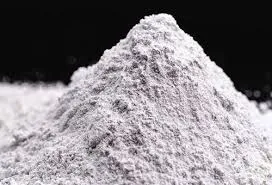
Dec . 06, 2024 21:35 Back to list
hydroxyethyl cellulose manufacturer
Hydroxyethyl Cellulose Manufacturer A Key Player in the Industry
Hydroxyethyl cellulose (HEC) is a non-ionic, water-soluble polymer derived from cellulose, which has gained significant attention across various industries due to its unique properties. As a key ingredient in a wide range of applications, the demand for hydroxyethyl cellulose has been on the rise, leading to a flourishing market for manufacturers. In this article, we will explore the role of hydroxyethyl cellulose manufacturers, their production processes, and the diverse applications of HEC.
Understanding Hydroxyethyl Cellulose
HEC is recognized for its ability to modify the viscosity of aqueous solutions and its capacity to act as a thickening agent. This polymer is produced through the reaction of ethylene oxide with cellulose, providing enhanced solubility and stability in various environments. The resultant product features excellent film-forming capabilities, making it an essential ingredient in many formulations.
The Production Process
The manufacturing of hydroxyethyl cellulose involves several key steps to ensure high purity and consistent quality. Initially, cellulose is extracted from natural sources, usually wood pulp or cotton, which serves as the raw material. The cellulose undergoes alkalization to facilitate the substitution reaction with ethylene oxide. Following this, the mixture is treated to control the degree of substitution, which directly influences the properties of the final product.
Once the reaction is complete, the HEC is precipitated, washed, and dried to remove any residual chemicals. Quality control is crucial during this phase, as manufacturers must adhere to strict industry standards to produce a product that meets customer specifications. Various tests, including viscosity measurements and solubility assessments, are conducted to ensure that the HEC meets the required standards for its intended applications.
Applications of Hydroxyethyl Cellulose
hydroxyethyl cellulose manufacturer

The versatility of hydroxyethyl cellulose allows it to be used across a wide array of industries. In the construction sector, HEC is often incorporated into cement-based materials, such as mortar and plaster, to enhance workability and water retention. This leads to improved adhesion and durability of the final product.
In the personal care industry, hydroxyethyl cellulose serves as a thickening agent in various cosmetic and skincare formulations. Its ability to create a smooth texture and improve the stability of emulsions makes it ideal for lotions, shampoos, and gels. Additionally, HEC is often used in pharmaceuticals, where it acts as a binder in tablet formulations and enhances the stability of liquid medications.
Moreover, the food industry has begun to explore the use of hydroxyethyl cellulose as a food additive. Its properties can contribute to texture modification, moisture retention, and fat replacement, making it a valuable component in low-fat or vegan formulations.
The Role of Manufacturers in Innovation
As the demand for hydroxyethyl cellulose continues to grow, manufacturers play a crucial role in driving innovation and ensuring product availability. Companies are investing in research and development to enhance production methods, improve product quality, and explore new applications for HEC. This commitment to innovation is essential for meeting the evolving needs of customers and staying competitive in the market.
Conclusion
Hydroxyethyl cellulose manufacturers are indispensable to multiple industries, providing high-quality products that enhance the performance of various formulations. Their expertise in production processes and commitment to quality ensure that HEC remains a vital ingredient in construction, personal care, pharmaceuticals, and food applications. As the market for hydroxyethyl cellulose continues to expand, manufacturers will undoubtedly continue to innovate and adapt to meet the needs of their customers. In doing so, they will contribute not only to their growth but also to the advancement of the industries they serve.
-
Versatile Hpmc Uses in Different Industries
NewsJun.19,2025
-
Redispersible Powder's Role in Enhancing Durability of Construction Products
NewsJun.19,2025
-
Hydroxyethyl Cellulose Applications Driving Green Industrial Processes
NewsJun.19,2025
-
Exploring Different Redispersible Polymer Powder
NewsJun.19,2025
-
Choosing the Right Mortar Bonding Agent
NewsJun.19,2025
-
Applications and Significance of China Hpmc in Modern Industries
NewsJun.19,2025







